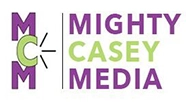 “It’s in my DNA.”
“It’s in my DNA.”
You hear people say that all the time about something they love to do, a passion, an attitude.
There are things that actually are in your DNA that could save you money, and even save your life. Those things are the P-450 enzymes CYP-2C19, CYP-2C6, CYP-2D9 – pay attention, there’ll be a test later – which can predict your response to a wide array of drugs. Statins, blood thinners, anti-anxiety meds, anti-fungals, anti-depressants, antihistamines, beta blockers, and more – in all, about 50% of the pharmaceutical menu.
So why isn’t this being offered at every doctor’s office and pharmacy throughout the land?
I’ve asked this question in arenas as diverse as women’s health events and healthcare industry conferences, and have gotten a combination of responses:
- Really?
- Physicians don’t know enough about it.
- Patients don’t know about it.
- Does insurance cover it?
The answers to those, in order:
- Yes.
- Here’s a link.
- Here’s another link.
- Yes.
On the insurance question: even if you don’t have insurance, the test itself only costs about $400. And you only have to have it done once. Unless you wind up in a Fukushima-level radiation accident or have massive radiation treatment for cancer.
A question: why isn’t pharma, which is so good at saying “ask your doctor about [insert name-brand drug here],” trumpeting DNA drug-response testing? That approach wouldn’t impact their bottom line negatively, even if it works out that some patients need less of the standard dosage of a drug. Because there will be plenty of cases where the standard dose of that same drug won’t be enough for someone else.
Another question: why aren’t health insurers pushing this? They can save money with wider use of DNA drug-response testing, because over- and under-medicating leads to poor outcomes. If you get more of a blood thinning drug than you need, that could have dire consequences. As could not getting enough of the same drug. The right dose, right from the start, saves money that would have to be spent on hospitalizations due to the wrong dosage.
Doctors do know about DNA drug-response testing, but it’s not on the standard order set. Yet. It needs to be, if only to ensure better outcomes. Which is the whole point of healthcare, isn’t it?
There are a number of companies offering DNA drug-response testing, more than enough to make testing available to anyone who wants it. There’s one that’s headquartered right down the road from me: Genetworx.
If you’re a doctor or nurse practitioner, start telling your patients about it, and keep test kits in your office.
If you’re a pharmacist, stock test kits and reach out to the doctors you fill prescriptions for to tell them the tests are available at your pharmacy.
If you’re a health plan/benefits administrator, let everyone you cover know that testing is available, and encourage the providers – doctors, nurse practitioners, pharmacists – on your list to start using DNA drug-response testing as a must-do step when they’re prescribing a new drug for someone you cover.
It seems really simple to me. Doesn’t it seem simple to you?
That logic thing. It’s in my DNA.



